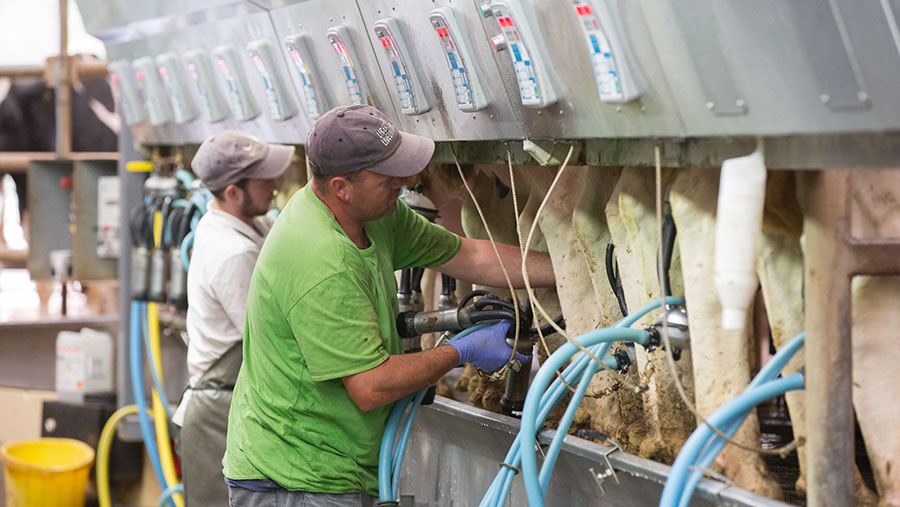New immigration rules cause flood of calls to global recruiters
 © Tim Scrivener
© Tim Scrivener Businesses that specialise in overseas recruitment for farms have seen a surge in inquiries in recent weeks, as employers try to beat the deadline for a government-stipulated foreign worker pay rise.
Farmers say the cost of meeting the new £38,700 salary threshold from 4 April 2024 is unsustainable and will leave many unable to operate their businesses.
See also: Farm labour dealt further blow with new immigration laws
The minimum earnings threshold for those arriving on the skilled worker route is set to increase by 48% from £26,200 to £38,700, as ministers look to drive down immigration.
Rory Christie, who has taken on nine foreign workers in his dairy and pig business in Scotland in the past year and invested nearly £100,000 in visas and other fees to get them here, told Farmers Weekly without them his business “would be stuffed”.
“We are a low-margin sector,” he said. “A 48% increase in salaries is not affordable.”
The government wants businesses like his to recruit domestically, but Mr Christie said he had tried and failed to do this.
“There just isn’t the skillset and experience in the UK for these jobs. We have tried to train people, but it hasn’t been successful.
“We have brought people from the Philippines and other countries because they are very good people and they are experienced in my dairy farming system.”
Jo Poole’s family employs 25 overseas workers in the dairy side of their mixed farming enterprise in Cheshire. They too have tried, but failed to recruit and retain staff locally.
Ms Poole dismissed the insinuation that sectors like agriculture had become reliant on cheap labour.
“It is not cheap labour,” she said. “At £10,000 per person, it is a massive investment to recruit from overseas, but we employ them because they are reliable and they turn up for work every day. We just can’t get staff locally that will do that.’’
CAS recruitment’s UK client services director Andrew Backhouse, who helps bring people to the UK from overseas to work on-farm, said the new threshold will push salaries up to £16/hour.
“I don’t know a dairy or pig farmer who earns that,” he said.
“It will push up labour costs right across the board because you can’t have one worker on £38,700 and an employee working alongside them on less than that.”
Mr Backhouse predicts a “vast shortage” of labour.
“Someone has got to pay for these higher costs, and you can guarantee that it won’t be supermarkets cutting their margins to accommodate them,” he said.
The rush to beat the deadline has also created issues for businesses in the process of recruiting.
All documents need to be countersigned by a solicitor, but one farmer, who asked not to be identified, said she had failed to secure an appointment with a notary due to the volume of inquiries.
